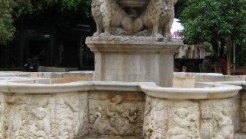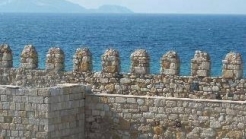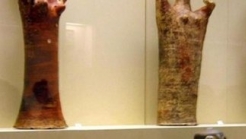

Greece
Gortys is one of the most important cities in Crete, with a continuous history of 6000 years, and one of the largest archaeological sites in Greece. It is situated in the south central part of Crete, in the fertile vallry of Messara, which was first inhabited during the end of the Neolithic period
Gortys is one of the most important cities in Crete, with a continuous history of 6000 years, and one of the largest archaeological sites in Greece. It is situated in the south central part of Crete, in the fertile vallry of Messara, which was first inhabited during the end of the Neolithic period (5th millennium BC)
The name Gortyna, according to tradition, came from Gortynas, son of Radamathis, king of Phaestos and brother of Minoas who founded it.
Gortyna was one of the first areas in Crete to attract explorers’ and archaeologists’ interest as long ago as the Turkish era, in the end of the 19th century, at a time when no one knew anything about the Minoan civilization, as its existence was unknown or considered a legend.
In 1884, the finding and restoration of the Great Sign by Iosif Chatzidakis, Stefanos Ksanthoudidis and the Italian prompted the archaeological research of the area of Gortyna. The digs in the wider area of Gortyna brought to light impressive architectural compounds, as well as findings, whereas until today a large part of the Roman city has not been dug up. The most important findings are exhibited in the Heraklio Archaeological museum, while the creation of the Messara Museum to house them, is expected to be built in the near future.


Heraklion is not just a city in the next visitor’s destination. Expresses something more, something deeper, a history of thousands of years. With this thought must learn the traveler to "read" the area beyond the mundane habits that require a visit to museums or at Knossos.


Generally, the Ottoman Heraklion is of great interest to anyone wander and get acquainted with the flavor of a bygone era.


The exhibits of the Mycenae Archaeological Museum come from Mycenae and the spots that have been investigated in the surrounding areas and are accompanied by explanatory material, such as information, identification tabs of the exhibits, maps, drawings and recreations.
1039 Ε 6061 01515 00